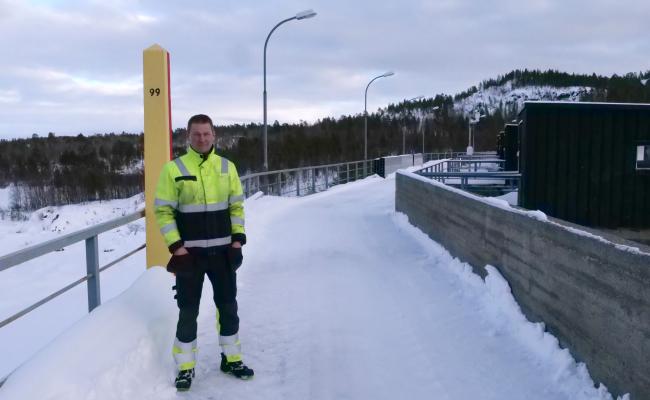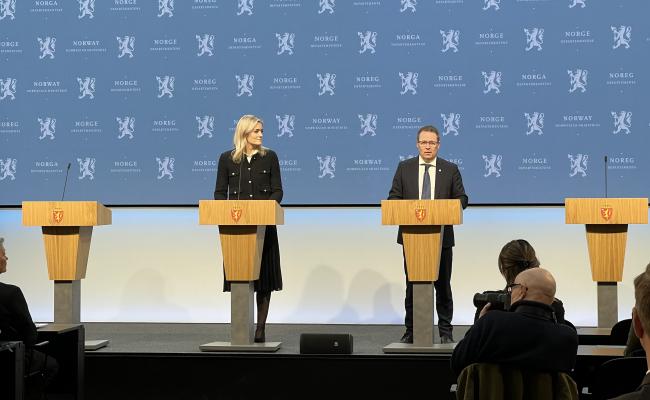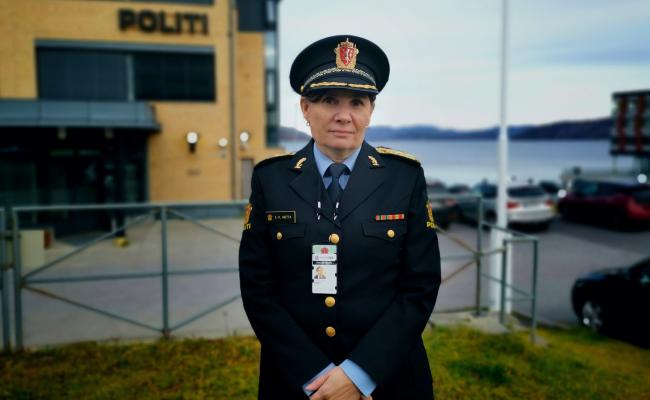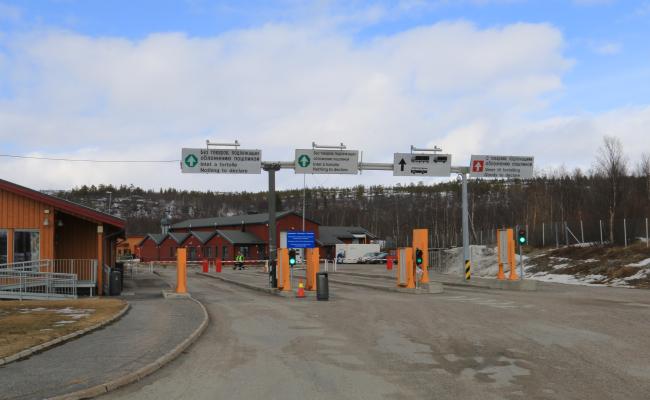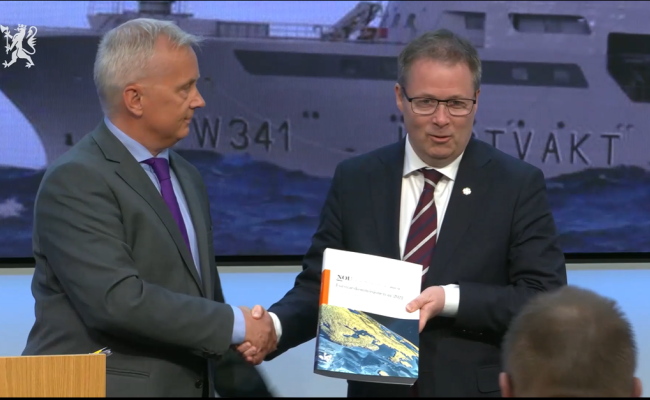Nordland Chief of Police: "The Russian Intelligence Threat Has Never Been Greater"
The Chief of Police in Nordland Police District, Heidi Kløkstad. (Photo: Trine Jonassen)
The Nordland Chief of Police asks the business sector in Northern Norway to wake up. "Russia must use intelligence services to a higher degree to access information from Norway," says Heidi Kløkstad, and asks municipalities and businesses to be especially aware of sabotage against infrastructure, influence activities, and not least, the classic honey trap.
Honey traps, increased intelligence threats, and influence activities targeted towards Northern Norway. The security challenges are lining up, and the Nordland Chief of Police, Heidi Kløkstad, is of no doubt:
"Russia is the most central threat right now," says Kløkstad to High North News.
Now Kløkstad asks Northern Norwegian businesses, municipalities, and institutions to take measures for their own security.
Already here
Since Russia attacked Ukraine in February 2022, Norway's cooperation with Russia has shriveled up to only apply to a few areas, such as fishery cooperation, search and rescue, and nuclear alerts on the border.
Overnight, our neighbor country went from friend – albeit forced by Norway's geographical location – to enemy. A situation that the Northern Norwegian business sector has taken a long time to get used to. And not least to be aware of the very real threat that Russian intelligent pose in Northern Norway.
Very little poison is needed in a waterworks before it is useless as a water source.
The fact is that Russian intelligence has already partly succeeded in undermining authorities and the business sector in the north. In a horror movie situation, this "call is coming from within the house."
"The most serious threats are also the least visible," says Kløkstad, pointing to hybrid – or complex – threats.
Important role
The chief of police was invited to the business conference Opplyst (Enlightened, editorial translation) to discuss the threat situation to the Northern Norwegian business sector. It seems like the gravity of the problem has not sunk in yet, believes the chief of police.
"The business sector in Northern Norway holds a major and important role in the preparedness and security work regarding the threat level from Russia. We live in quite a different world than we did a few years ago, and although no war is being fought on Norwegian soil, we are part of this war."
She lists possible Russian targets such as defense, aquaculture, oil and gas, tech businesses, academia, and media. And not least, water and power plants and infrastructure, in which the police have already seen sabotage attempts.
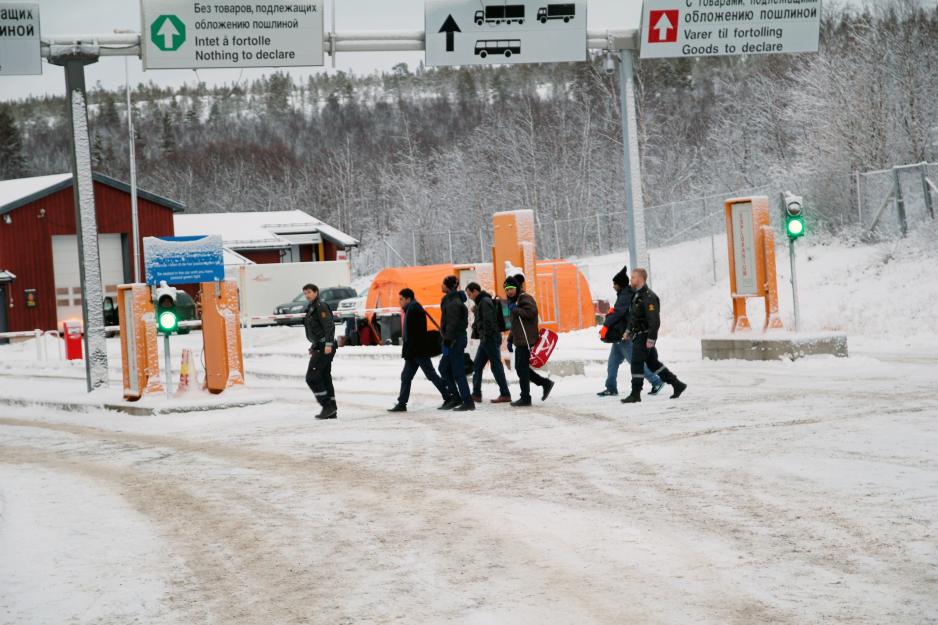
The police receive asylum seekers at Storskog in the fall of 2015. The Nordland Chief of Police, Heidi Kløkstad, points to controlled migration over the Russian border as a possible link in Russian intelligence. (Archive photo: Amund Trellevik)
Civilian targets
"Russia hardly has the capacity to attack the West militarily. They cannot lead two wars simultaneously, especially not when NATO is the opponent. Therefore, they go after the civil society to influence and destabilize us as much as possible," says the chief of police.
She mentions 3D printers, artificial intelligence, biotechnology, surveillance technology, space technology, and underwater technology as fields of particular Russian interest.
What hybrid threats have in common is that they are challenging to detect and easy to deny, as it is not known who is behind them. Threats that hit the civilian society may be a part of a more extensive campaign to influence Norwegian interests.
Sabotage
Kløkstad mentions well-known cases such as digital attacks on municipalities and the Norwegian business sector, on media and academia, and controlled migration – as we saw a few years ago over Storskog in Finnmark. But also damage and sabotage on critical infrastructure.
"We have had several cases in Nordland and Troms where power stations and waterworks have been exposed to attempted sabotage. It can be anyone, but we have gone the extra round with the municipalities to ensure that they are aware of the values they have. Very little poison is needed in a waterworks before it is useless as a water source," Kløkstad points out.
Also read
"It is very vulnerable. The moment you remove the internet, power, and water, in addition to other infrastructure, you have zeroed out a community. That is why we are concerned with how municipalities secure their socially critical objects by checking physical security, surveillance cameras, and whatever is needed."
Increased knowledge
Would you say there is a lack of such preparedness in the municipalities?
"They are likely starting to wake up now, and work has been done together with the county governor in order for them to understand how important this work is and that they are responsible for important and valuable resources that must be protected."
These methods have in common that they lie below the threshold for war and use of military power.
Defense-heavy region
The fact that Northern Norway is a defense-heavy region and borders Russia – and its nuclear forces – in the east, makes the region even more interesting to Russia.
The base agreement
Norway's cautiousness toward Russia is based on Norway and Russia's agreement on the Norwegian government not entering into agreements that oblige Norway to open up bases to foreign forces on Norwegian soil as long as Norway is not under attack or exposed to threats of attack.
In the additional agreement signed by the US and Norway two years ago, American investments in infrastructure are facilitated in so-called "agreed areas" in Norway.
The four areas defined in the agreement are Evenes, Ramsund, Sola, and Rygge.
"Northern Norway has the country's densest concentration of military facilities and installations, which all are relevant to the Russians," says Kløkstad and lists:
"On Evenes, a major military development is happening with the NATO quay for allied reception. We are finishing up a spaceport on Andøya, and both the US and other allies are pre-storing material on Northern Norwegian soil. Arrangements have also been made for foreign combat aircraft to come to Northern Norway. In Ofoten, we have a railway across Nordland county that can bring allied personnel from the coast to Sweden."
Stronger allied presence
The chief of police also notes that allied forces in Nordland and Troms are becoming more and more permanent.
Do you consider the base agreement with the US to be watered down?
"We see that forces stay here for longer and longer periods. Some exercises extend far beyond the time they last, such as Cold Response. One thing is when the exercise is happening, but they are often here for six months before and after to prepare and clean up. One could question how precise this is. It is becoming more and more permanent," comments the chief of police.
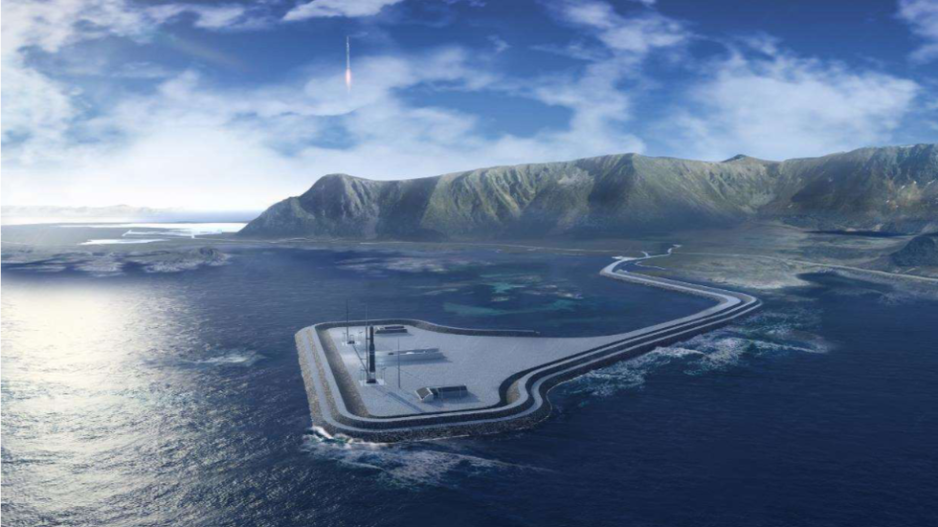
Andøya Spaceport received NOK 365,6 million from the government and is ready to open on November 2nd. The Nordland Chief of Police, Heidi Kløkstad, refers to the spaceport as a clear target for Russian intelligence. (Photo: Norconsult)
She adds that Russia is fully aware of what allied forces are located in Norway.
Andøya of interest
Heidi Kløkstad also points out Andøya as an area of increased Russian interest.
Not least now as Norway's only spaceport on the mainland is ready to open at the beginning of November.
"Andøya is one of the areas in Nordland where we register the biggest increase in Russian tourism, Russian celebrations and memorials, and Russian attempts to buy property."
Strategic acquisitions
Property acquisition is a method that state actors often use to gain a footing in Norway. So-called strategic acquisitions, according to the Norwegian Police Security Service (PST).
Also read
"It is about buying up companies that, for example, manage sensitive technology or buildings that are close to Norwegian resources, like the Armed Forces."
Businesses that manage properties, either for buying, selling, or renting, may also be of interest to foreign actors like Russia.
Dormant cells
Klølstad also points to cases where ordinary Russians are used by Russian intelligence, either because they are paid or because they are being threatened.
"After the wall fell in 1990, many Russians established themselves in Norway. And we do not need to worry about most of them. But some of these can now be forced to carry out missions on behalf of Russian intelligence. Family that still lives in Russia can be used as leverage," explains the chief of police.
Yes, the honey trap is well-known.
One of the most well-known examples is from UiT, the Arctic University of Norway in Tromsø, where a researcher was arrested. He is now in custody. Norway also expelled 15 Russian diplomats earlier this year.
Can use violence
Kløkstad says that Russian intelligence differs from other countries because they are more professional. And they are willing to use violence, and results are expected in the home country.
The many arrests of Russians photographing or flying drones in forbidden areas show that ordinary people are used in Russian intelligence.
It turned out that all of these had cars full of old electronics and trash, as Kløkstad calls it. It ended with the Nordland Police using valuable resources and time, going through half a million photos of trees and stones without finding anything of interest.
Successful
The Russians maintained their innocence, and Norwegian police were accused of being Russophobic and hostile by Russian authorities. The chief of police says that the arrested Russians were likely explicitly sent to disrupt, uncover the police's capacities, and look for vulnerabilities.
"The Norwegian people were likely pleased the first times we arrested suspicious Russians. But as we keep make arrests without finding anything, people will become distrustful and wonder what in the world the police are doing. Thereby, the threat actors have achieved exactly what they wanted: to weaken the people's trust in the authorities and the democracy."
These are missions anyone can come to Norway to do for money.
Honey trap
But some things have not changed because business representatives are still caught in the classic Russian honey trap. And what is that, exactly?
Russian intelligence is known for using the classic honey trap, in which sex is used as bait to gain sensitive information.
Would you say that Russian intelligence successfully undermines parts of Nordland's business sector?
Yes, the honey trap is well known. There are several instances where actors from the business sector have been caught in a honey trap," says Heidi Kløkstad.
The Chief of Police in Nordland Police District, Heidi Kløkstad, addressed intelligence threats against Northern Norwegian businesses during the Opplyst conference in Bodø at the end of September. (Photo: Trine Jonassen)
Wolf in sheep's clothing
The threat actors often wish to use Norwegian accomplices and representatives because all messages will sound better if a Norwegian person conveys them.
Often, this is regarding non-editor-controlled media, such as social media, to spread disinformation and fake news.
"For us in Norway, it is important that we can see the complexity and to see this in a bigger context and assess if these are threats that are part of something bigger."
The business sector is a target
The Defense Commission's report clearly signals that the business sector must be part of the total defense to a higher degree. Kløkstad agrees.
"The business sector must understand that they are a target for foreign intelligence. Increasing security in the Norwegian business sector must be prioritized, which is why the PST has embarked on a project that looks at how they can cooperate more closely with businesses in Nordland."
In the meantime, she asks the Northern Norwegian business sector to take responsibility for their security.



